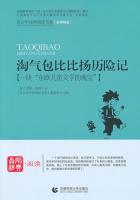About the third week in August, Arthur set out for Scotland, and Mr Hargrave accompanied him thither, to my private satisfaction. Shortly after, I, with little Arthur and Rachel, went to Staningley, my dear old home, which, as well as my dear old friends its inhabitants, I saw again with mingled feelings of pleasure and pain so intimately blended that I could scarcely distinguish the one from the other, or tell to which to attribute the various tears, and smiles, and sighs awakened by those old familiar scenes, and tones, and faces. Not quite two years had passed since I had seen and heard them last; but it seemed a far, far longer time; and well it might, for how immeasurably changed was I! how many things had I not seen, and felt, and learned since then! My uncle, too, appeared perceptibly more aged and infirm, my aunt more sad and grave. I believe she thought I had repented of my rashness; though she did not openly express her conviction, or triumphantly remind me of her slighted counsels, as I had partly feared she would; but she observed me narrowly--more narrowly than I liked to be observed--and seemed to mistrust my cheerfulness and unduly mark each little indication of sadness or serious thought, to notice all my casual observations, and silently draw her own inferences from them; while, by a system of quiet cross-questioning renewed from time to time, she drew from me many things I should not otherwise have told her, and laying this and that together, obtained, I fear, a pretty clear conception of my husband's faults and my afflictions, though not of my remaining sources of comfort and hope, for though I endeavoured to impress her strongly with the notion of Arthur's redeeming qualities, of our mutual affection, and the many causes I had for thankfulness and self-congratulation, she received all such intimations coldly and calmly, as if mentally ****** her own deductions--which deductions, I am persuaded, were generally far beyond the truth; though I certainly did exaggerate a little in attempting to picture the bright side of my position. Was it pride that made me so extremely anxious to appear satisfied with my lot,--or merely a just determination to bear my sell-imposed burden alone, and preserve my best friend from the slightest participation in those sorrows from which she had striven so hard to save me? It might have been some thing of each, but I am sure the latter motive was predominant.
I did not much prolong my visit, for, not only did I feel my aunt's relentless watchfulness and incredulity to be a restraint upon me, and a silent reproach that oppressed me more than she could well imagine, but I was sensible that my little Arthur was an annoyance to his uncle, though the latter wished him well, and no great amusement to his aunt, though an object of her earnest affection and anxious solicitude.
Dear aunt! have you so tenderly reared me from infancy, so carefully guided and instructed me in childhood and youth? and could I give you no return but this--to disappoint your hopes, oppose your wishes, scorn your warnings and advice, and darken your latter years with anxious fears and sorrow for the sufferings you cannot relieve?--It almost broke my heart to think of it; and again and again I endeavoured to convince her that I was happy and contented with my lot; but her last words, as she embraced me and kissed the child in my arms, before I entered the carriage, were,--`Take care of your son, Helen, and there may be happy days in store for you, yet. How great a comfort and treasure he is to you now, I can well imagine; but if you spoil him to gratify your present feelings, it will be too late to repent it when your heart is broken.'
Arthur did not come home till several weeks after my return to Grass-dale: but I did not feel so anxious about him now: to think of him engaged in active sports among the wild hills of Scotland was very different from knowing him to be immersed amid the corruptions and temptations of London. His letters, now, though neither long nor lover-like, were more regular than ever they had been before; and when he did return, to my great joy, instead of being worse than when he went, he was more cheerful and vigorous, and better in every respect. Since that time, I have had little cause to complain. He still has an unfortunate predilection for the pleasures of the table, against which I have to struggle and watch; but he has begun to notice his boy, and that is an increasing source of amusement to him within doors; while his fox-hunting and coursing are a sufficient occupation for him without, when the ground is not hardened by frost; so that he is not wholly dependant on me for entertainment. But it is now January: spring is approaching; and, I repeat, I dread the consequences of its arrival.
That sweet season, I once so joyously welcomed as the time of hope and gladness, awakens, now, far other anticipations by its return.















